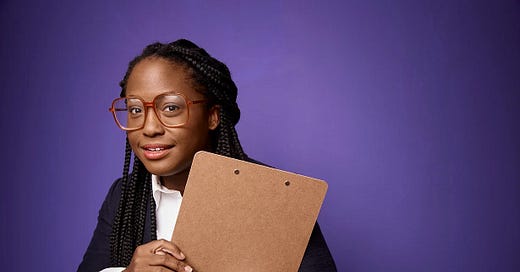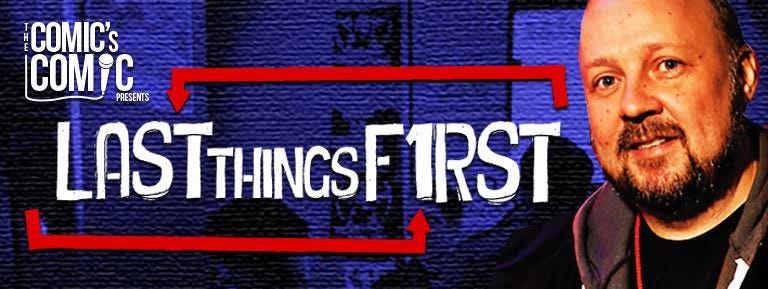Kenice Mobley is a comedian from North Carolina, now based in Brooklyn, NY, whose star has been on the rise since the start of the pandemic. Mobley landed on Vulture’s Comedians You Should and WiIll Know list in 2021, made her late-night debut on The Tonight Show Starring Jimmy Fallon, and performed at the Netflix Is A Joke Festival in 2022 as part of the “Introducing…” showcase. She also launched an Instagram Live and podcast called Make Yourself Cry. Now she’s more fully introducing herself to the world with her debut comedy album, Follow Up Question, out now via Blonde Medicine. Mobley joined me over Zoom to talk about how she pivoted from studying psychology to performing comedy, her work with a nonprofit seeing how comedy can change hearts and minds on critical issues, and what has made her cry along the way.
Here’s a track from her new album which establishes, indeed, she’s gonna be asking some follow-up questions of her audience:
If you’re not already subscribed to my podcast, please seek it out and subscribe to Last Things First on the podcast platform of your choice! Among them: Apple Podcasts; Spotify; Stitcher; Amazon Music/Audible; iHeartRadio; Player.FM; and my original hosting platform, Libsyn.
This transcript has been edited and condensed only slightly for your convenience. We join this conversation after some initial small talk about drinking, open windows and the sounds of New York City…
Last things first, congratulations on your debut stand-up comedy album.
Thank you so much. I'm excited.
And of course it helps, because it allows me to ask you all sorts of follow up questions. Because that’s the title of the album. First up, I know you've done quite a bit of press where you talk about how the original plan was to get a PhD in psychology. So you start out on that path, you get your bachelor's in psychology at North Carolina Central?
Yes.
What happened? Because then you go from that to Boston University and doing the MFA film program at BU. So what happened in Durham?
No. So I was actually living in Washington, DC. There's a program called, I think it's UNC in DC. And they take students from all of the constituent University of North Carolina schools, since it's a rather large public university system. They take students from each of those universities, and they put you in this apartment building in DC. So you live with people from different schools, from different parts of the state, which don't honestly have that much interaction. So talking to people who's like, yeah, my campus is right next to a pig farm. And I'm also talking to people who are like, yeah, I go to UNC. And it's like, they're world-class scholars here, and all that sort of stuff. So it's really cool to be there. Some people had two jobs, I just had one job, because they wanted me to come in every day. And I worked at the American Psychological Association, which was a lot of fun. My job was speaking with different psychological organizations in England, Australia, and India, trying to make sure that there was sharing of documentation. So all of the research studies that were done here, making sure that they could be available to scholars in those other places. But I was doing that. And I was talking to a friend. And he was talking about a 24-hour movie festival where you like, in 24 hours, you're supposed to get the prompt, write a script, shoot it, edit it, and be done with it within 24 hours. And he's like, it's really hard. I can't think of anything with these random elements. And I was like, ‘Oh, well, with those elements, you would do this, this, this, or this. Or you could do another one that's like this, this’ and he's like, OK, it's really weird that you just came up with four ideas for this within our conversation. Like you talk about movies all the time, but you never talk about psychology. Why aren't you doing something with movies? And I was like, honestly, because I never thought of that before. And then I wrote to a bunch of universities, because I'm a big ol dork. And that's probably one of my first moves. But I was like, yeah, what are the steps? What are you looking for in people that would be a part of this program? It's something I'm genuinely interested in. And they were like, do you want to do film studies or production? And I had already done a fair amount of photography in undergrad. And I was a photographer for the school newspaper, and I really liked photography. I want to do production. So I ended up at Boston University doing film production.
So how quickly after showing up in Boston, do you get lured into the comedy scene?
So it was a long journey, actually.




